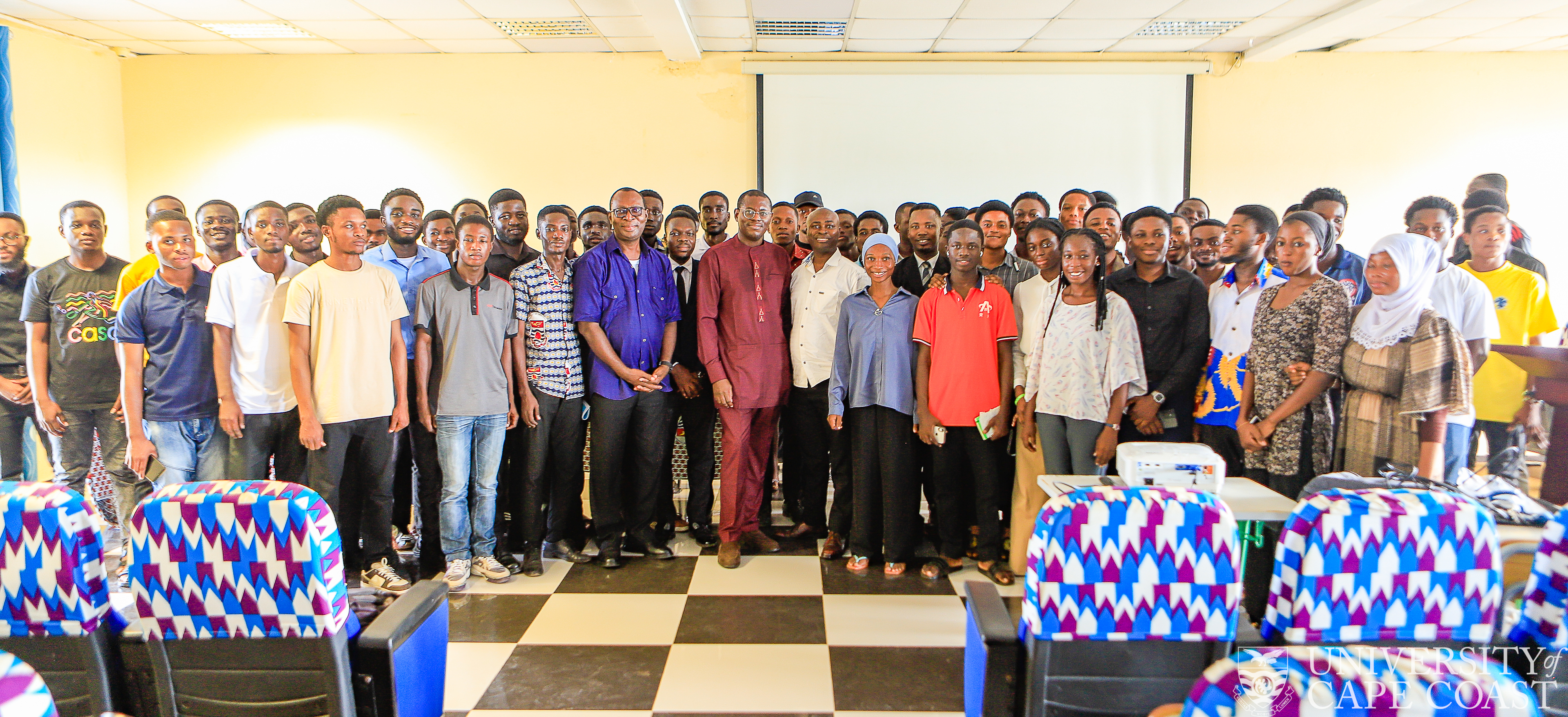The Vice President of IMANI Ghana, Mr. Bright Simons, has underscored the urgent need for Ghana to adopt a structured recycling policy to address environmental challenges.
He made the call during a policy engagement session at the University of Cape Coast (UCC), which aimed at exploring sustainable development pathways for Ghana.
The event was attended by Dr. Stephen Moore, a lecturer at the Department of Mathematics, UCC, alongside students and faculty members. It served as a platform for thought-provoking discussions on national development, sustainability, and the role of academia in shaping policy.
Mr. Simons, who is also the Chief Executive Officer of MPedigree, challenged participants to rethink Ghana's development strategies through innovative research and environmentally conscious approaches.
He highlighted that an effective recycling framework could do more than addressing environmental concerns. It could also stimulate economic growth, create employment opportunities, and encourage sustainable industrial practices. According to him, recycling should not be seen merely as a waste management tactic, but as a viable economic driver with long-term benefits for the country.
“Ghana must move beyond rhetoric and begin to treat recycling as an economic imperative. With the right investment and policy backing, recycling can become a key sector for job creation and innovation,” he stated.
He also underscored the role of academic institutions in national development, arguing that research must extend beyond scholarly debates to influence real-world policy. Mr. Simons urged universities to produce more policy-relevant research and publications that can inform and shape decisions at governmental and institutional levels.
“It is not enough to publish for journals; the research must engage with the policy space. Academic insights should feed into the national conversation on issues such as education, health, climate change, and governance,” he emphasized.
Mr. Simons advocated the emergence of social entrepreneurs and what he described as “Mavericks” bold, innovative thinkers who challenge conventional norms and lead social transformation.
He urged the youth, especially students, to adopt innovation and entrepreneurship as effective means of tackling community issues and fostering national development.
Speaking at the function, a senior lecturer at the Department of Mathematics, Dr. Stephen Moore, said the lecture reinforced the growing recognition of the importance of academia-industry collaboration in addressing Ghana’s developmental challenges. Dr. Moore who coordinated the lecture said there was the need for continuous dialogue among policymakers, academics, entrepreneurs, and civil society actors to shape a sustainable and inclusive future for the country.
The session concluded with an open forum where students and lecturers engaged Mr. Simons on various issues, including youth participation in policy-making, education reform, and technological innovation.
Source: Documentation and Information Section

